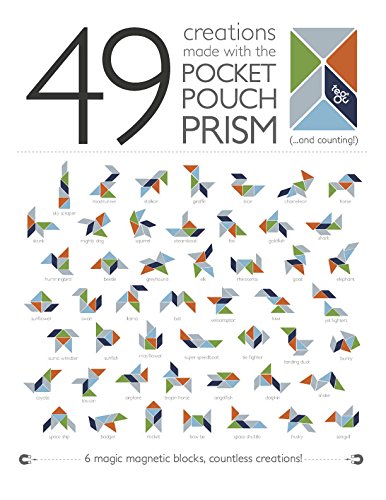Magnetic Wooden Building Blocks
![]() WARNING – This product contains small magnets. Swallowed magnets can cause complications leading to serious infections and death. Seek immediate medical attention if magnets are swallowed or inhaled.
WARNING – This product contains small magnets. Swallowed magnets can cause complications leading to serious infections and death. Seek immediate medical attention if magnets are swallowed or inhaled.
Brothers Chris and Will Haughey began with the simple notion that Honduras needed businesses which offered living wage jobs. Home to beautiful hardwoods, the country could have been the perfect spot for sustainably manufacturing any number of wooden products.
The brothers were inspired by classic wooden toys. Tegu blocks inspire children while addressing unemployment, neglected natural and human resources, and the need for entrepreneurship in Honduras.
“Children use toys to articulate meaning and substance,” says Will, explaining that blocks are the perfect medium because you can stack them into anything you want.
Tegu is positioned more as a high end specialty toy. “It’s definitely a niche product,” said Chris Byrne, who is known as “The Toy Guy” at a website that tracks the toy industry, “And there’s nothing like it in that niche.”
The innovative toys are “wonderfully tactile” and feel great to touch, Byrne said. ” They are kind of a work of art in themselves”, he said, “Something he would not be afraid to put on his coffee table”.
“Some parents like the idea of teaching their children about social issues through toys”, Byrne said. “In addition to the fun of play, it reinforces global responsibility.”
The blocks, which hearken back to traditional play gifts designed by Friedrich Froebel in their simplicity and craftsmanship, seek to unlock creativity in play by avoiding the overstimulation and prewritten scripts that come with so many elaborate mass produced toys.

Chris and Will Haughey cite research linking imaginative “free play” to important cognitive development, and they seek to use Tegu blocks to open imaginative possibilities and facilitate long term learning.
Chris Haughey first travelled to the Honduran capital of Tegucigalpa in the spring of 2004, to work with a group that was educating children living and working in an unregulated landfill used by the city as a giant dump. Shocked by a degree of poverty he had never witnessed firsthand before, Chris emailed his investment banker and hedge fund analyst brother Will and together they began dreaming of ways to bring a little of the kingdom of heaven to the impoverished nation of Honduras.
“We came from the capitalist mindset and were convinced we could do something to help,” Will noted in a Daily News interview. “Obviously we wanted to make money, but we also wanted to positively impact the local community.”
The brothers set about establishing a factory in Tegucigalpa seeking to bring “world class employment standards” by offering living wages and prioritizing big picture career growth over merely task based jobs to Honduras, the second poorest nation in Central America.
